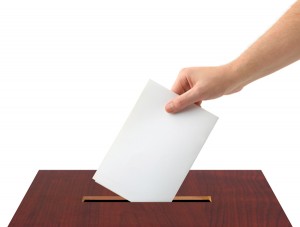 By Steve Brawner
By Steve Brawner
© 2016 by Steve Brawner Communications, Inc.
Primary elections were moved this year from May to March 1 to give Arkansans a voice in the presidential election and to help former Gov. Mike Huckabee win an early state. The more important result will be that state lawmakers will make a lot of decisions about Arkansas’ future with an election in their rearview mirrors instead of in their windshields.
Legislators wanted Arkansas’ primary to occur earlier in the election calendar, on the same day as votes in other states in the South, to create an “SEC primary.” With contests in 11 states across the country, Republicans will award 595 delegates – a fourth of the total. The big prize is Texas, with 155 delegates, while Arkansas will award 40. Democrats will award 957 delegates – again, Texas leads with 252 votes, while Arkansas has one of the smallest totals with 37.
The move appears to have achieved its goals. Arkansas is relevant, or is at least among a relevant group of states, so it’s warranted a few visits from candidates, if that means anything. It won’t help Huckabee, who has suspended his campaign, but, among the Democrats, it does help the state’s former first lady, Hillary Clinton. At least Arkansas is in the game, though mostly watching from the bench.
More important is what’s happening in state politics. During even-numbered election years, the Arkansas Legislature typically holds a fiscal session early in the year to vote on budget-related issues. Because of the early primary, that session was moved to April, after the primary. Meanwhile, Gov. Asa Hutchinson has announced plans to call two special sessions, one to vote on health care reform that will occur shortly before the fiscal session, and one to vote on his highway funding proposals.
The highway session will be big but not huge. Hutchinson has proposed a plan to increase highway money using a variety of means, including shifting some dollars from the state’s general revenue budget, but without raising taxes. There will be shouts of anguish from those who might be affected, but the average Republican primary voter won’t be mad.
The health care special session, however, will be a doozy. Legislators will vote on a package that will include Arkansas Works, which is Hutchinson’s version of the private option with important but not earth-shattering changes.
The program, whatever it’s called, uses federal dollars to purchase private health insurance for Arkansans with incomes up to 138 percent of the poverty level. It’s been hugely controversial since it was created in 2013 because it’s an extension of Obamacare passed by legislators who decided Arkansas might as well get its share. Unlike some states that turned down the money, Arkansas’ uninsured adult population has been more than cut in half, 200,000 people have health insurance, and its hospitals are providing a lot less unpaid care.
Republicans either don’t like it or, often, don’t like saying they’re for it. Its roots are in Obamacare, which is enough for many voters to oppose it. Opponents say it’s unsustainable. Sometimes, candidates sincerely oppose it on the campaign trail, but then they come to the Capitol and, seeing the numbers, decide they have to support at least something.
The health care special session is occurring in early April-ish because of the federal government’s timelines. Then we’ll have the fiscal session starting April 13, where legislators will vote to spend the money. Had the primaries not been moved, candidates would have had to vote for the private option in the special session, and then fund it in the fiscal session, and then campaign in a Republican primary. Naturally, their opponents would have accused them of selling out to President Obama.
Now, they can finesse the issue on the campaign trail and then come to Little Rock to vote on Arkansas Works – either as newly re-elected incumbents or as defeated lame ducks with nine months left to serve and nothing left to lose.
Presidential politics is what drove this decision to move the primaries, but at least some legislators were also thinking about private option politics.
Of course, if several legislators who support Arkansas Works lose March 1 to private option opponents, it will affect others currently on the fence. They won’t want to be losers next time.
So politics would have been involved no matter when the primary would have occurred. Oh, well. It’s a democracy, after all.
Steve Brawner is an independent journalist in Arkansas. Email him at brawnersteve@mac.com. Follow him on Twitter at @stevebrawner.